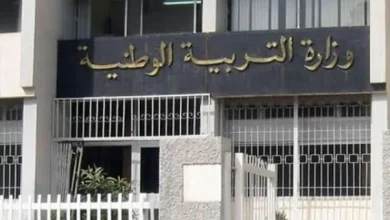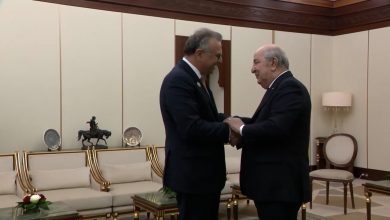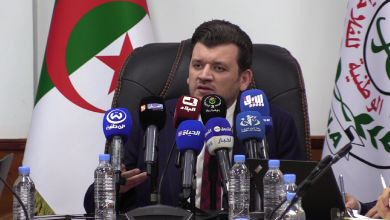Rome, October 21 (askanews) – Exactly one year after taking office, Fratelli d’Italia celebrates the first ‘anniversary’ of Giorgia Meloni’s government, the ‘underdog’ (her own definition) who became the first woman at the helm of Palazzo Chigi.
‘The Winning Italy. One year of results. How the Meloni government is revitalizing the Nation’ is the initiative organized by the parliamentary groups of Fratelli d’Italia. The central event will take place at the Brancaccio Theater in Rome, culminating in the address by the Prime Minister, scheduled for 10:30 AM, broadcast via video link to the regional events’ locations. The speech will be preceded, starting at 9 AM, by a roundtable discussion featuring Nicola Procaccini, co-chair of the ECR group in the European Parliament; Fabio Rampelli, Vice President of the Chamber of Deputies; Orazio Schillaci, Minister of Health; Gennaro Sangiuliano, Minister of Culture; and Francesco Lollobrigida, Minister of Agriculture and Food Sovereignty.
Economy and migration have been the two focal points on the Prime Minister’s agenda, influenced by the war in Ukraine and its consequences (including inflation and energy supply issues) and, more recently, the crisis in the Middle East.
In terms of the economy, the government’s first budget was largely in line with the previous Draghi government, given the tight timelines. However, Meloni quickly dismantled the flagship measures of the Five Star Movement (M5s): the citizenship income and the superbonus, which were accused of being a burden of 130 billion euros on public finances. Measures to combat the high cost of energy (costing around 22 billion euros) and to support incomes took up a significant portion of available resources. Even in the recently approved 24-billion-euro budget, the priority was to extend the reduction in the tax burden for lower incomes for one year and take action on pensions. Regarding tax reform, the government had to contend with limited resources. The budget law includes a first step, with the extension of the 23% tax rate from the first to the second income bracket. One billion euros has been allocated to families and childbirth, with funds for nurseries and de-contribution for working mothers with two or more children.
Closely tied to economic policy is the implementation of the National Recovery and Resilience Plan (PNRR), inherited from the previous administration. Meloni entrusted the management of the dossier to Minister Raffaele Fitto and initiated a reorganization of the governance, essentially centralizing control at Palazzo Chigi, where a steering committee meets regularly. The change in direction initially caused some delays, compounded by the need to revise certain parts of the PNRR due to the changed international context (energy prices, inflation). Currently, the first three installments have been received, and negotiations with Brussels are ongoing to secure the fourth installment of 16.5 billion euros by year-end.
On the issue of migration, the government’s early days were marked by the tragedy in Cutro, where, on the night of February 25-26, a boat from Turkey sank. Over 90 people, including women and children, lost their lives in the shipwreck. After much controversy (due to statements by Interior Minister Matteo Piantedosi) and some wavering, Meloni convened the Council of Ministers on March 9 in the Calabrian town, enacting the so-called Cutro Decree, which included tougher measures against human traffickers, with the aim of pursuing them worldwide. The core of Meloni’s approach to the issue has been to press Europe for a shared and coordinated response in two directions: combating illegal immigration, emphasizing the ‘defense of external borders,’ and fostering a new relationship with Africa, based on ‘equality and non-predation.’ This principle will be included in the ‘Mattei Plan,’ expected to be presented early next year and modeled on the Memorandum with Tunisia, which is still in the process of implementation, not without resistance in Brussels and Tunisia itself. On September 17, Meloni visited Lampedusa with European Commission President Ursula von der Leyen, who announced a 10-point plan to combat illegal immigration. While a positive initiative for the Prime Minister, she now must work with partners to make it ‘concrete and operational.’
In Europe, Meloni’s arrival was met with curiosity. In addition to her close relationship with conservative allies like Mateusz Morawiecki, the Prime Minister of Poland, and Viktor Orban, the Hungarian Prime Minister, Meloni found an unexpected ally in the Dutch Prime Minister, Mark Rutte. However, both Morawiecki and Rutte will soon no longer be members of the Council. Her relationship with Emmanuel Macron has been fluctuating, with friction, particularly regarding NGOs involved in rescuing migrants. This disagreement, both in public and private, has at times been heated. Reconciliation was ultimately found, partly thanks to the mediation of President of the Republic Sergio Mattarella, and at this stage, the French President is supporting the Italian initiative on migration. Meloni has also had recent disputes with German Chancellor Olaf Scholz regarding NGOs. Eventually, a ‘truce’ was reached in Granada. In the Spanish city, on the sidelines of the European Political Community, Meloni, together with British Prime Minister Rishi Sunak, launched a new ‘open’ format with the aim of uniting European countries and others outside the Union. The new Stability Pact will be a crucial test of the Prime Minister’s ability to create alliances with other EU countries.
In her first year, Meloni has traveled extensively, with a particular focus on the Mediterranean region, both on the European and African shores. After her debut at an international summit at COP27 in Sharm el-Sheikh, the Prime Minister attended the G7 in Hiroshima and the G20 in Bali and New Delhi. She visited the United States twice (Washington to meet with President Joe Biden at the White House and New York for the UN General Assembly) and once to Kiev. She paid significant attention to Africa, with two missions to Tunisia, a trip to Algeria, and a recent lightning visit to Mozambique and the Congo. There was also a strong focus on Eastern Europe, with trips to Poland, Albania (which she supports in its EU accession), Lithuania, Latvia, and Hungary. She is expected to attend COP28 in Dubai shortly. An unexplored territory, from her perspective, is South America, where she could visit in 2024. Today, she made a dual stop in Cairo and Tel Aviv, supporting Israel while simultaneously seeking de-escalation of the crisis.
Regarding security, the current government initially introduced the first decree targeting rave parties, followed shortly by a decree tightening controls on migrants and NGOs. Other restrictive measures were included in the Cutro Decree, which, among other things, allowed for the detention of asylum seekers in Cpr facilities. This provision was later “dismantled” amid significant controversy by the Catania Tribunal. Another security measure was introduced with the Caivano Decree, which included urban bans even for fourteen-year-olds, stricter penalties for illegal possession of weapons, and penalties for parents for their children’s truancy. However, the government is also working on an urban regeneration project in Caivano, aiming to make it a model for the recovery of degraded areas.



